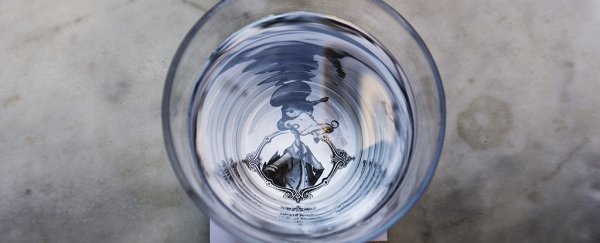If you're finding it hard to get your thoughts straight, dehydration could be to blame. An analysis of previous research has found a link between dehydration and poor performance in tasks that need serious focus or advanced mental processing.
While we know that staying hydrated is good for us for all kinds of reasons, this new meta-study was designed to take a closer look at exactly which brain processes might be affected and at what level of dehydration.
It turns out that at just a 2 percent level of body mass loss due to dehydration – so losing about a litre of water through sweat – the mental imbalance starts. That underlines how crucial it is for us to keep up our water intake, and how damaging it might be to the mental agility we all rely on if we don't.
"We find that when people are mildly dehydrated they really don't do as well on tasks that require complex processing or on tasks that require a lot of their attention," lead researcher Mindy Millard-Stafford, from the Georgia Institute of Technology, told Allison Aubrey at NPR.
Millard-Stafford and her colleague Matthew Wittbrodt looked at 33 previous studies linking dehydration with mental performance. In total, the studies covered a total of 413 individuals experiencing between 1 percent and 6 percent of body mass loss through dehydration.
That 2 percent point seems to be the tipping point when it comes to staying mentally sharp. According to the experts, it would maybe take an hour's hike to get to that level.
What's more, it's a level of dehydration that we might not actually notice through triggers like increased thirst: so mental performance could decline even when we don't feel like we need to take on any water.
The analysis backs up previous research suggesting that dehydration impairs some mental processes more than others, with attention, executive function, and motor coordination particularly hard hit. Lower-level tasks like reaction time aren't as badly affected, the meta-study shows.
While it's different for every individual, experts recommend that women get up to 2.7 litres or 95 fluid ounces (11.5 cups) of water every day, and men up to 3.7 litres or 130 fluid ounces (15.5 cups).
The body as a whole is 60 percent water, which it leverages for jobs like transporting nutrients around the body and lubricating our eyeballs.
When there isn't enough water available – it's regularly lost through sweating and urination – these vital functions start to break down. We become thirsty, start to feel nauseous, and become more likely to feel exhausted.
There are limitations to the research, as there are with any meta-study like this: the individual studies analysed were all run with different people, under different conditions, and with different structures. That said, it does give researchers a framework to start investigating this link further.
Future research will be able to look at this framework in more detail. In the meantime, if you've got a lot of mental processing to do, make sure you drink plenty of water first.
The research has been published in Medicine & Science in Sports & Exercise.
